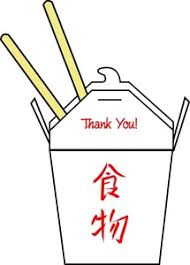AUDIOBOOKS: THE CHINESE FOOD OF LITERATURE?
 I’ve got that craving again, that gnawing, empty feeling I get when I am not reading a book. Over the holidays I tidily finished up Henry James’s Daisy Miller , Paul Auster’s Mr. Vertigo, and a nonfiction book. Since then I’ve been tearing through old magazines and listening to audiobooks. Just yesterday I spent four hours listening to an audiobook while on the road. And I will listen to more of it when driving into town today.
I’ve got that craving again, that gnawing, empty feeling I get when I am not reading a book. Over the holidays I tidily finished up Henry James’s Daisy Miller , Paul Auster’s Mr. Vertigo, and a nonfiction book. Since then I’ve been tearing through old magazines and listening to audiobooks. Just yesterday I spent four hours listening to an audiobook while on the road. And I will listen to more of it when driving into town today.
This audiobook is superb: Sebastian Haffner’s memoir, Defying Hitler. I look forward to finishing it. And yet I feel empty, and bookless.
Remember that old saying about feeling hungry again an hour after eating Chinese food? I’m beginning to wonder if audiobooks are the Chinese food of literature.
Reading Vs. Listening
In past blogs I’ve wondered if the experience of reading a physical book is different than listening to a book. Clearly it is. There is something much more intimate about holding a book in your hands than receiving it as a disembodied voice. You have a visceral knowledge of how words on the page translate into images in your brain.
The voice of the story is your voice, not that of the chosen narrator. The pacing, the emphasis, is yours as well.
I think I process information better when I see it, and can take it in at my own pace, in my own voice. I like to stop to ponder what was said, and to re-read poignant or complex or confusing phrases and sentences. I like to flip back and forward, and know where I started and how far there is to go to the end. That’s where physical books beat e-books as well.
And yet when I’ve raised questions before about different ways of reading, I’ve convinced myself that while it may be different to hear a book, or read it on a screen, the story still gets told. You can learn and feel no matter how the words get into your head.
So why do I feel so empty? Is it just misplaced guilt, some reflection of a childhood long ago where having a book in my hands was a form of security? Or is listening to an audiobook just a pale shadow of reading actual words on a page?
Poll: Are Audiobooks a Substitute for Reading?
Many of my dearest friends and family members swear by audiobooks. Some have converted almost completely. But I remember seeing recently that some people were foregoing e-books these days, returning to good old-fashioned books. Could the same be true of audiobooks, convenient as they are?
What do you think? Are audiobooks a substitute for reading a physical book, or even an e-book? What do you gain by hearing versus reading a book? What do you lose? And does anyone else feel as lost as I do when you don’t have a physical book to devour?
Please share responses via the comments section below, the contact form on my website, my Twitter account (@terraziporyn), or the Late Last Night Books Facebook page. I’ll share results next month.
Terra Ziporyn
TERRA ZIPORYN is an award-winning novelist, playwright, and science writer whose numerous popular health and medical publications include The New Harvard Guide to Women’s Health, Nameless Diseases, and Alternative Medicine for Dummies. Her novels include Do Not Go Gentle, The Bliss of Solitude, and Time’s Fool, which in 2008 was awarded first prize for historical fiction by the Maryland Writers Association. Terra has participated in both the Bread Loaf Writers Conference and the Old Chatham Writers Conference and for many years was a member of Theatre Building Chicago’s Writers Workshop (New Tuners). A former associate editor of the Journal of the American Medical Association (JAMA), she has a PhD in the history of science and medicine from the University of Chicago and a BA in both history and biology from Yale University, where she also studied playwriting with Ted Tally. Her latest novel, Permanent Makeup, is available in paperback and as a Kindle Select Book.
- Web |
- More Posts(106)